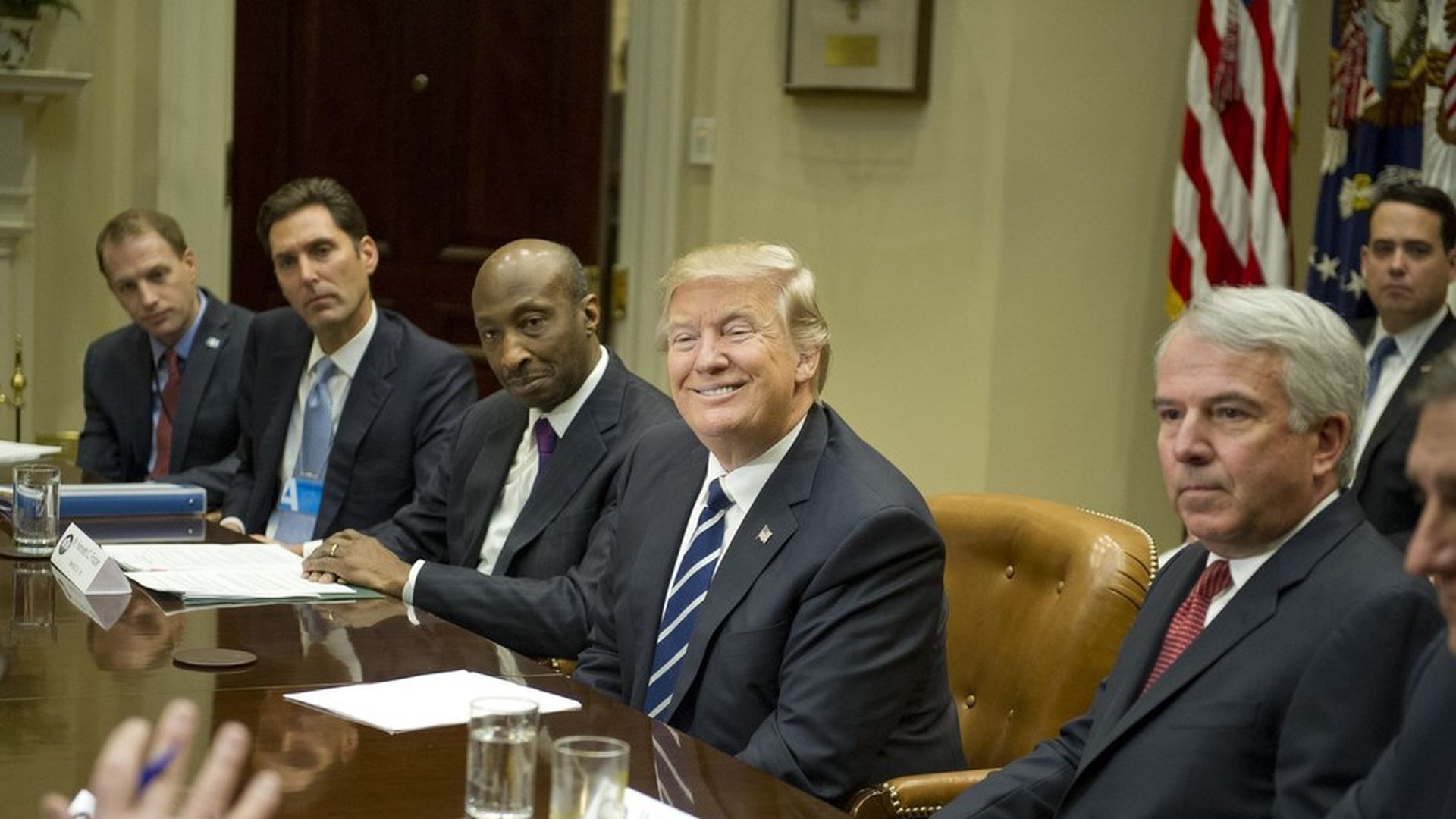Feb 23, 2017
Here's why PhRMA sees hope for "value-based" payments
Add Axios as your preferred source to
see more of our stories on Google.

Ron Sachs / Pool via CNP /MediaPunch/IPX
Add Axios as your preferred source to
see more of our stories on Google.

Ron Sachs / Pool via CNP /MediaPunch/IPX